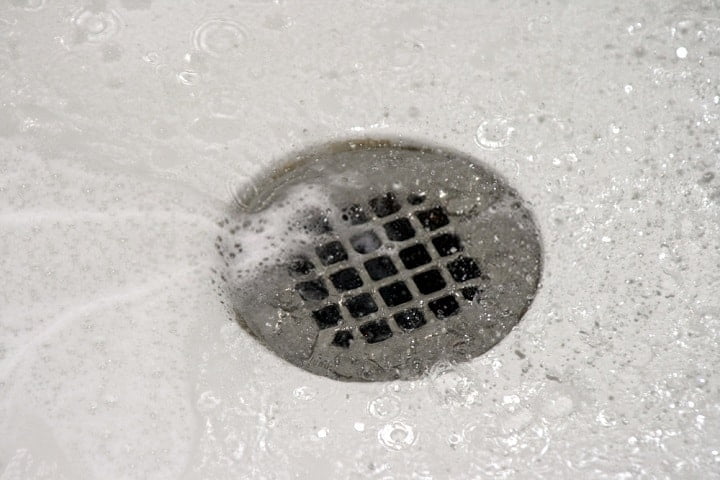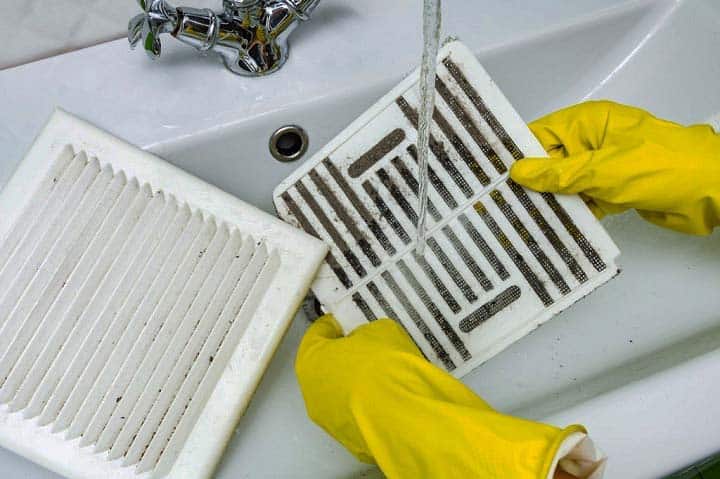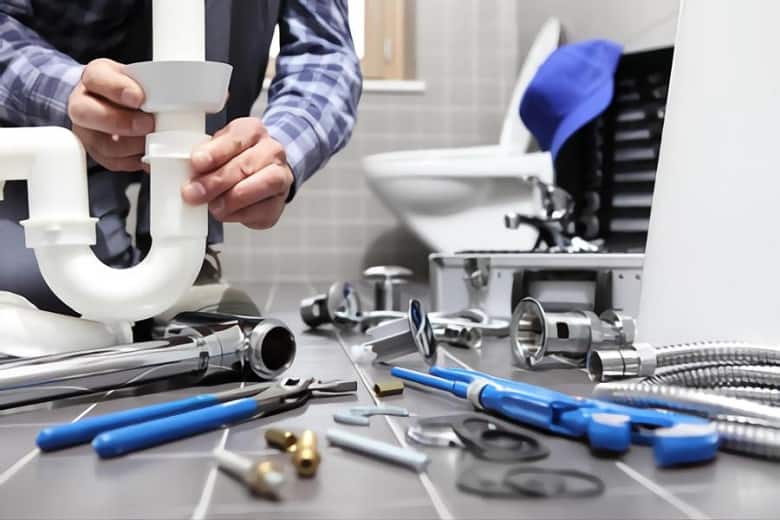Most houses in most of the states treat wastewater in the septic tank. I assume that you already know that the water and waste from the toilet go to the septic tank where it is treated. I also assume that your property must have a septic tank beneath the ground where the wastewater is treated.
While we all know that the wastewater from the toilet goes to the septic tank, many are confused about where the shower water goes. Does shower water go into septic tanks or somewhere else?
The straight answer is yes, shower water goes into a septic tank. In fact, any water that moves through the drain ends up in the septic tank. As shower water travels out the house through a drain, it eventually goes into the septic tank.
Does Shower Water Go Into A Septic Tank?
All the water in the house that leaves the house through the drain goes into a septic tank. Be it shower water, laundry water, toilet water, etc. all go to the septic tank where it is treated.
However, there is a limit of water that the septic tank can hold. If the septic tank gets loaded, it won’t function properly and can collapse. And the consequence of a damaged septic tank is dangerous. It would no more treat the wastewater, release odor and gases, and can make the place dirty and stinky.
Therefore, though shower water goes into the septic tank, to let it function properly, you need to know some additional factors as well. But you need not worry as I am here to tell you all about how you can let the septic tank work efficiently.
What Happens As The Shower Water Goes Into The Septic Tank?
You may wonder why shower water has to go to the septic tank. What exactly happens in the septic tank as the shower water goes into the septic tank?
So here is why shower water goes into the septic tank and what happens there.
Basically, all the drains are attached to a single drain that goes to the septic tank. So, all the water that moves through the drain ultimately travels to the septic tank.
In the septic tank, there are good bacteria. These bacteria break down the organic materials in the wastewater. The septic tank treats the wastewater and domestic wastes. Remember that the septic tank can’t break down or treat all kinds of waste. It has some limitations that you need to consider.
Not all wastes should go to the septic tank. Shower or bath water can be treated easily by the septic tank. But some substances should not pass to the septic tank. Now, what are these substances?
Substances That Should Not Go To The Septic Tank:
Here are some common substances that we tend to throw away in the drain that goes to the septic tank. But it eventually damages the septic tank as these substances should not go to the septic tank. Three such substances are listed below:
Detergents:
Septic-safe detergents or mild detergents or liquid cleaners are not a problem to the septic tank. But detergents containing phosphate are not suitable for septic tanks as they can’t break such detergents.
Other Substances:
The other substances that don’t break should not go to the septic tank. These substances include toilet paper, sanitary napkins, cotton buds, floss, cigarette buts, antibiotics, etc. These substances clog the septic tank.
Overflow Of Water:
If the septic tank is not emptied, it would overflow the continuous flow of water. The overloading of water would cause a nasty condition and the septic tank would stop working. So you have to stay conscious about the amount of water going to the tank.
What Happens If You Use Too Much Water With Septic? (The Consequences)
You have learned the factors that can cause the septic tank to get damaged. But what happens when shower water overloads the tank? Before knowing the consequences, let me tell you what are the situations when there can be an overload of shower water in the septic tank. This can make you aware of such situations.
Some conditions when there can be an overload are:
- When the bathroom is being used frequently, the septic tank gets overloaded. The septic tank doesn’t get enough time to get emptied when the drain passes water to the septic tank fast.
- If the toilet is releasing water to the drain due to some kind of malfunction, the septic tank would get full in a short time before it gets empty.
- Substances that can clog and block the septic tank take up space inside the tank. This means that the space for wastewater is now less as it is occupied with other substances. This is another condition when the tank can get overloaded.
Now let’s come to the consequences. The consequences that you are likely to face are given below:
- The first sign of an overloaded septic tank can be a nasty odor coming out from the drain or pipes. This shows that the tank isn’t functioning properly.
- Dirty water can come up to the bathroom through the drainpipe due to little space in the septic tank. This happens when the tank is occupied.
- You may hear continuous gurgling sounds coming out from the toilet if the septic tank isn’t working properly. A strong odor may come out too.
- The drainpipe would drain water very slowly if the septic tank is overloaded.
How Do You Stop Your Septic Tank From Overloading?
You have to stay a bit careful if you want to prevent overloading the septic tank with shower water. So here are some tricks that you must know to avoid overflowing in the septic tank.
- The first thing is to control your laundry. Don’t clean all the clothes on the same day. Rather clean them regularly so that you don’t load the septic tank with water.
- Another trick is to reduce the shower time and spending of water. On average, 16 gallons of water is enough for a person to take a bath. If you minimize the time, you can spend less water avoiding the overflow.
- Avoid throwing tissue, pads, etc. to the toilet. Also, flush it after 2 or 3 times of using the toilet and then flush. This would prevent frequent flushing and won’t overflow the tank.
These are the basic steps that you can take to prevent overloading of the septic tank.
Related Questions:
Does The Shower Water Go To The Septic Tank In All Houses?
Shower water moves to the septic tanks in the buildings that have a septic system. But there are buildings in the city areas where the shower water directly moves to the sewer system. But in small towns and countrysides, buildings generally have a septic system.
How Much Shower Water Overloads The Septic Tank?
Most septic tanks can hold 1200 gallons of water per day. This capacity is denoted by thinking that an individual can spend between 60 to 70 gallons of water per day.
However, the size of the septic tank would vary according to the number of people living and the size of the building. But on average, any septic tank would hold at least 1200 gallons of water per day.
Are Long Showers Bad For Septic Tanks?
A long shower means more spending of water. As more water goes to the septic tank in a short time, it increases the chance of overflowing. This is because the tank doesn’t get enough time to get emptied.
As a result, the septic tank may overflow if the capacity is low. This is why determining the shower time is necessary.
Conclusion:
You have known that shower water goes to the septic tank. You have also learned how you must maintain the condition of the septic tank to let it function properly. Now that you know the basics, you can wisely use and maintain the septic tank and control the amount of shower water passing to the tank. Isn’t it?
I am James Martin, An professional plumber with more than 16 years of experience. The main purpose of my writing is to share my experiences of helping others. Be with me and explore bathroom plumbing, installation, cleanness ideas, and many more.




